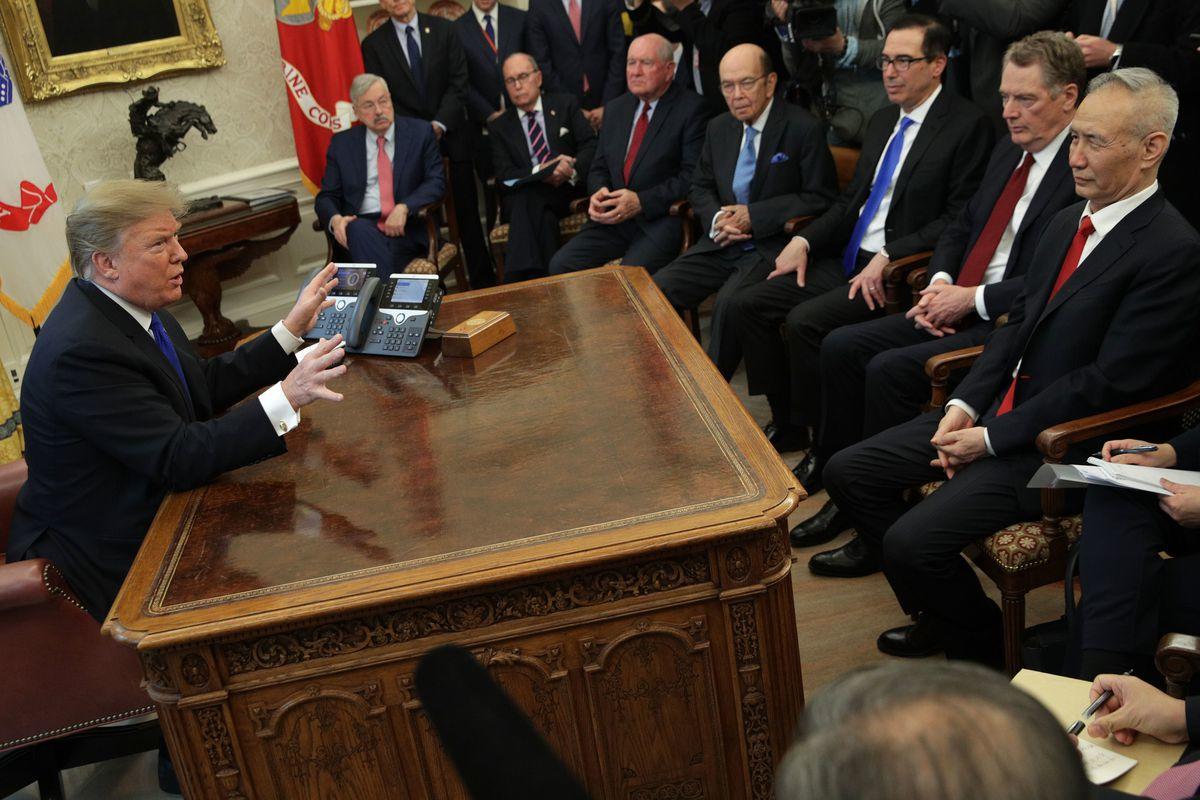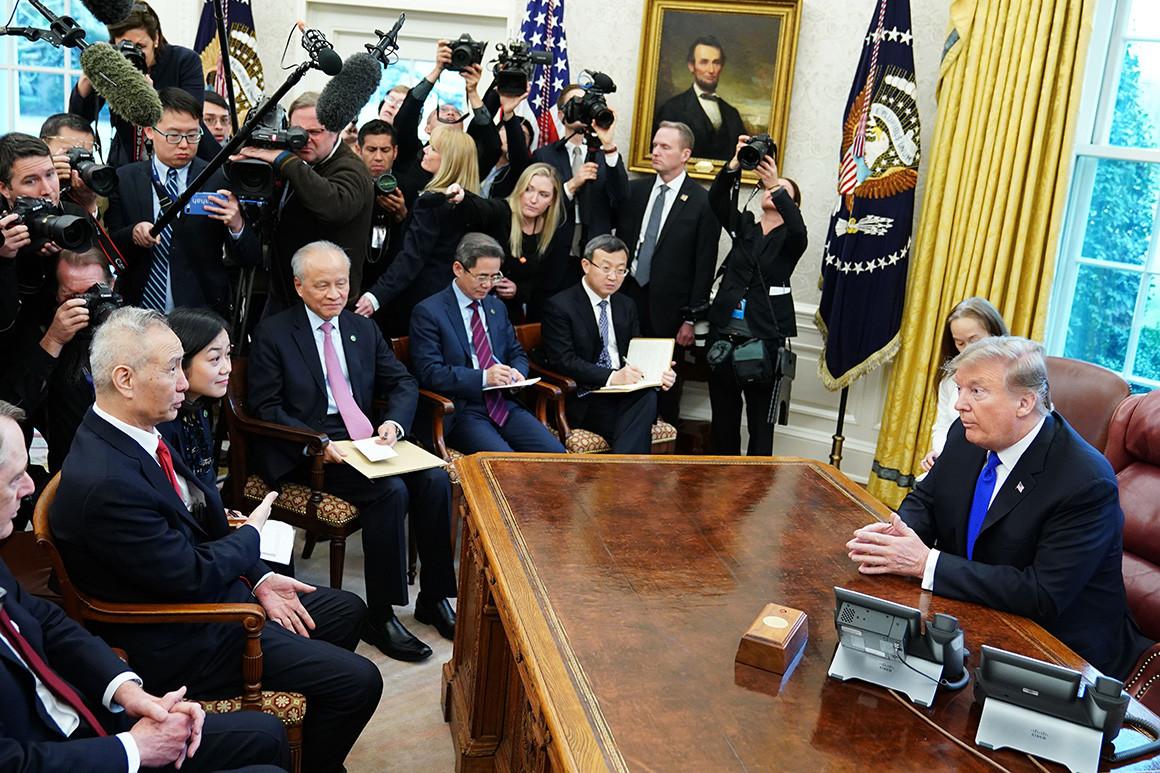Huawei
files motion to declare US ban ‘unconstitutional’
RT,
29
May, 2019
Chinese
tech giant Huawei has filed a motion with a Texas court to overturn
the ban on its products, arguing that the 2019 National Defense
Authorization Act illegally targeted the company in violation of due
process.
The
NDAA, used by the Donald Trump administration to ban Huawei's
technology from competing in the US marketplace, directly targets the
Chinese telecommunications equipment company “without
opportunity for rebuttal or escape,” Song
Liuping, the firm’s chief legal officer, said ahead of Tuesday’s
filing.
“The
law provides Huawei with no opportunity to rebut the accusations, to
present evidence in its defense, or to avail itself of other
procedures that impartial adjudicators provide to ensure a fair
search for the truth,” Liu
said.
The ban is a quintessential bill of attainder and a violation of due process.
The
motion for summary judgment filed by the tech giant with the Eastern
District Court of Texas seeks a judge’s decision on newly imposed
restrictions on Huawei products without going to a full trial. Back
in March, Huawei sued the US over a clause of the NDAA (Act. Section
889 ) which bans government agencies from procuring
telecommunications hardware made by the Chinese firm. The court
has scheduled a hearing for September 19 to consider Huawei's claims.
The
company argues that the ban is unconstitutional because Washington
specifically singled out two Chinese firms – ZTE and Huawei - in
its text. It maintains that NDAA is part of the Trump
administration’s campaign of political and economic pressure
against China, designed to give US companies an unfair competitive
advantage.

China ‘seriously considering’ restricting rare earth exports to US –Global Times chief
Global
Times: China Holds Three Trump Cards In War Against US
28 May, 2019
Via Oriental Review,
Amid the escalating economic war between the US and China, discussions have intensified on how Beijing might stand up to the economic power of America, especially given that the global economy is increasingly dependent on the US dollar as the main currency for international trade, and the closing of US markets could do some serious damage to China’s export-oriented companies. China’s main foreign-policy publication, the Global Times, points to three trump cards that Beijing could use to at least level the playing field in its fight with the Trump administration and cause appreciable harm to the US economy, possibly forcing its opponent to temporarily scale back its ambitions.
According to an article in the Global Times by a professor at the Renmin University of China, the three trump cards are:
1) banning the export of rare earths to the US;2) blocking US companies’ access to Chinese markets; and3) using China’s portfolio of US Treasury bonds to bring down the US government debt market.
Each of these trump cards are worth looking at in detail, both in terms of their impact on the US economy and also in terms of any possible retaliation from the US and the repercussions for the global economy as a whole.
Banning the export of rare earths to the US would actually be a pretty serious blow for US electronics manufacturers and, indeed, US high-tech manufacturers generally. This is because rare earths are a key raw material for the production of smartphones, various chips, and other high-value-added products that are the biggest cash cows of US companies such as Apple and Boeing.
President Donald Trump during a meeting with Chinese Vice Premier Liu He over trade talks in the Oval Office, February 22, 2019
Reuters, an agency one could hardly accuse of sympathising with Beijing, reports: “The United States has again decided not to impose tariffs on rare earths and other critical minerals from China, underscoring its reliance on the Asian nation for a group of materials used in everything from consumer electronics to military equipment.”
China does not exactly have a monopoly on such materials, but the market would definitely be in short supply without Chinese exports, with all the price implications that would bring. Moreover, it is likely that some deficit positions will be impossible to close no matter how much money is involved.
Not everything is that simple, however. Should such a ban be introduced, then Beijing will encounter certain technical difficulties. If sanctions are only imposed on US companies, then they will still be able to purchase the necessary materials through Japanese or European straw buyers, making the embargo pointless. But if China imposes a total export ban, then it won’t just be US companies that suffer but European ones as well, leading to EU reprisals against Chinese exporters to Europe. This would be very painful for China, especially given the economic war with the US that is making access to European markets invaluable to the Chinese economy.
It appears that a ban on rare earth exports is a powerful weapon, but its use will require the utmost delicacy and serious diplomatic efforts to avoid any extremely unpleasant side effects.
The second trump card mentioned by the Global Times is blocking US companies’ access to the fast-growing and extensive Chinese market. This should be looked at from a political, rather than economic, point of view (although the latter may seem logical). The aim of such restrictive measures is not to inflict unacceptable damage on the US economy, but to make the full might of America’s corporate lobbying machine work against Donald Trump and support his political opponents.
According to the S&P Dow Jones Indices, Asia only accounts for around 14 per cent of the sales of S&P 500 companies. If we assume that China makes up the majority of this, then not even a complete closure of the Chinese markets would be a disaster. There are a few important details, however.
- First, China is the only (and final) market for sales growth for many US companies. So if China closes, the graphs at business presentations won’t be showing any kind of growth.
- Second, China plays a key role in many production chains that end with sales in the US and other markets. A loss of access to Chinese production would therefore severely damage the competitiveness of American companies on the world (and even on the US) market, especially if their European and Japanese competitors retain complete access to China’s production facilities.
As a result, the profits of US companies and the future of the American stock market (which is a key political barometer given that many Americans have invested their savings in shares) would be at risk. It might be possible to offset these problems by transferring production to other Asian countries with cheap labour and favourable terms, but this couldn’t be done quickly and it would be risky, given that Trump is waging trade wars with everyone from the European Union to loyal US allies such as Japan and India. In light of this, US companies will have a huge incentive to prevent Trump from being elected for a second term, and the lobbying and political capabilities of that part of the US corporate sector that will suffer the most from this trump card could really play a key role in the political victory of Trump’s opponents.
The third trump card involves China dumping its portfolio of US Treasury bonds. The Global Times writes: “China holds more than $1 trillion of US Treasury bonds. China made a great contribution to stabilizing the US economy by buying US debt during the financial crisis in 2008. The US would be miserable if China hits it when it is down.” One can conclude from this that Beijing will most probably save dumping its portfolio of US treasury bonds for dessert – in that it will have the biggest impact when the US stock market is experiencing its next crisis.
China’s Vice Premier Liu He (left) speaks during a meeting with President Donald Trump (right) in the Oval Office of the White House on February 22, 2019
The move is not likely to cause catastrophic damage in and of itself (although the value of US bonds will definitely fall), but if it is done at the moment when America is most vulnerable, then China’s portfolio may well end up being the straw that breaks the camel’s back.
Beijing is not displaying a particularly cocksure attitude. As the Global Times’ editor-in-chief quite rightly notes on Twitter:
“Most Chinese agree that the US is more powerful than China and Washington holds initiative in the trade war. But we just don’t want to cave in and we believe there is no way the US can crush China. We are willing to bear some pain to give the US a lesson.”
As China lays its trump cards on the table, the world’s globalised economy will creak and collapse. Globalisation is going backwards, and chances are we’ll end up with a completely different economic system that has more protectionism. Instead of a global market, there will be several large regional markets with their own rules, dominant currencies, technical standards, and financial systems.





No comments:
Post a Comment
Note: only a member of this blog may post a comment.